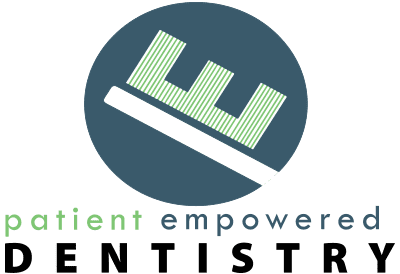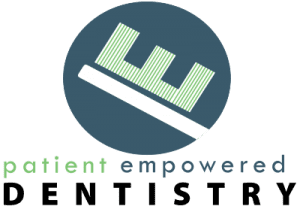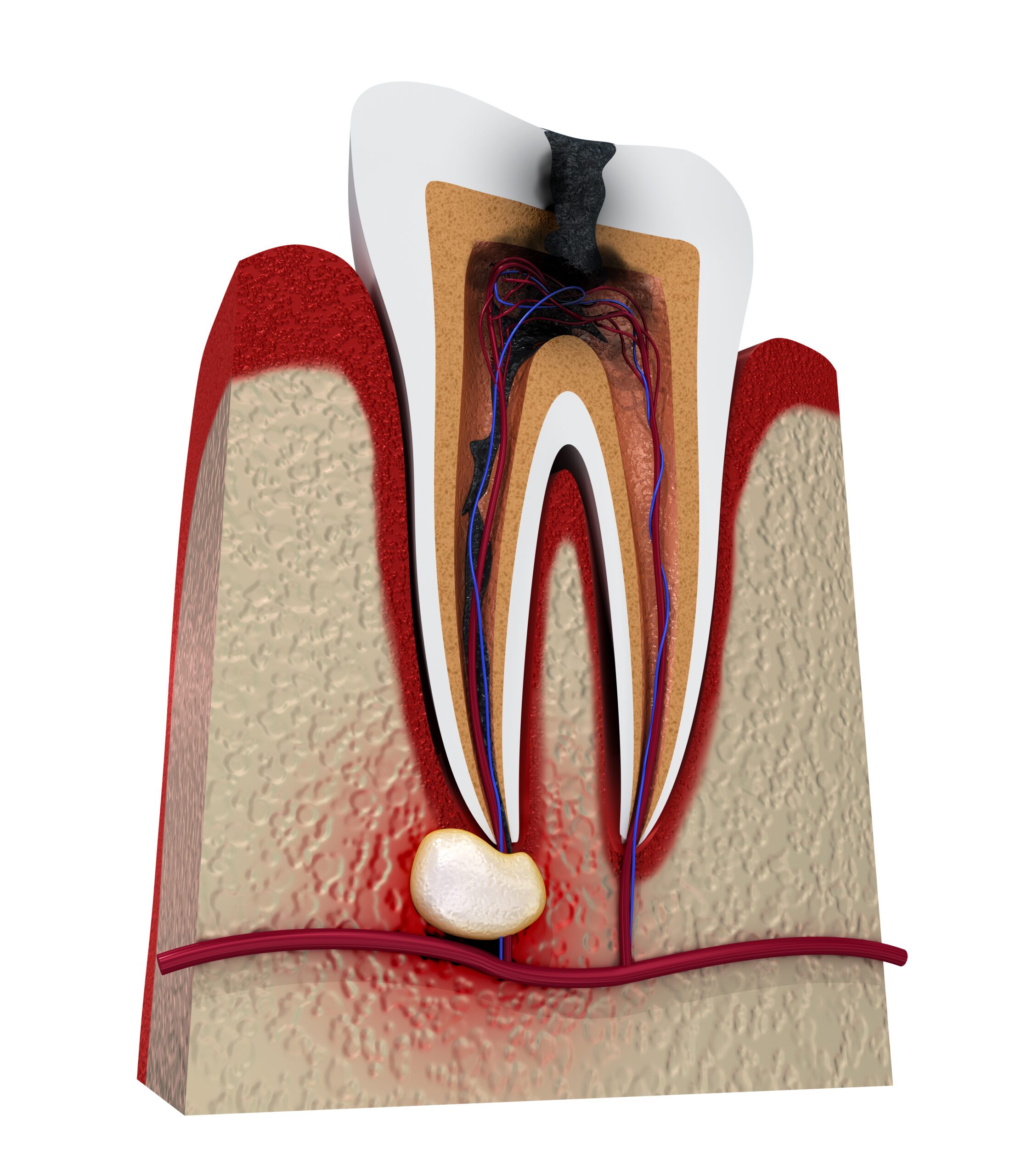Gum or dental abscesses, though somewhat common, can pose a severe threat to our oral health if left untreated. Understanding what a dental abscess is, the reasons a gum abscess occurs, and the necessary treatment options is therefore critical.
In this comprehensive guide, we navigate the somewhat complicated world of gum abscesses, helping you to identify and treat them correctly.
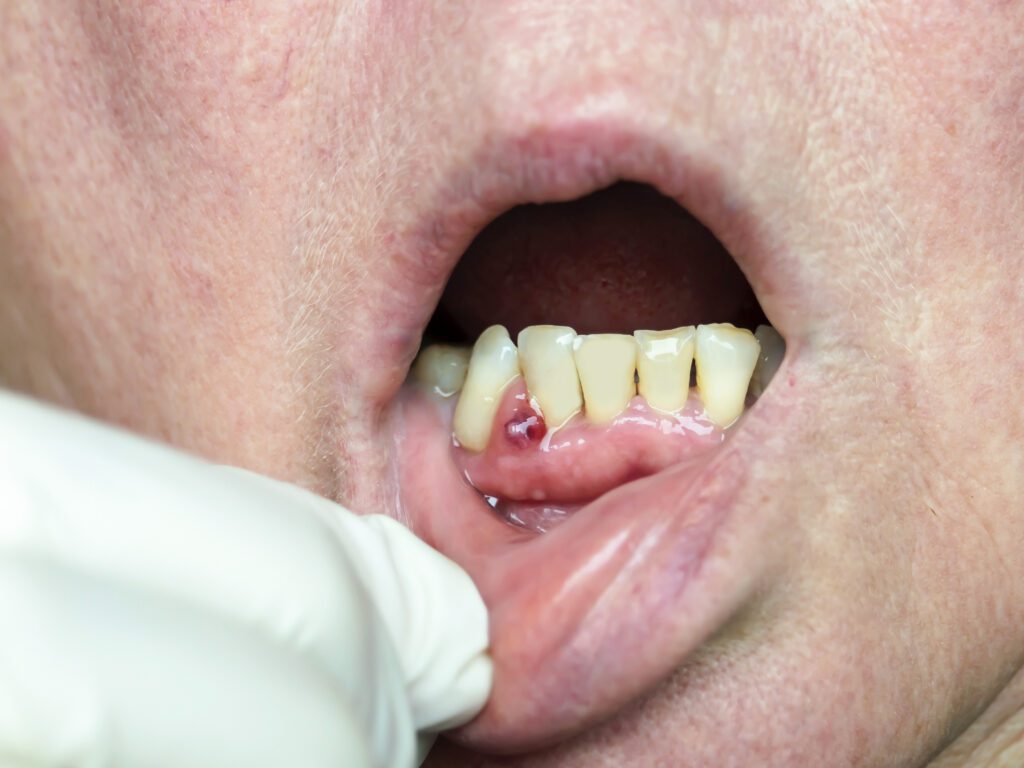
What is a Gum Abscess?
A gum abscess, also known as a periodontal abscess, is an infection that occurs in the connective tissue between the teeth and the gums. It arises when the bacteria present in the mouth cause an infection, leading to an accumulation of pus in the gums. This condition can manifest as a boil or pimple on your gums, typically appearing swollen and darker than other gum areas. An abscess can cause mouth complications like severe pain, fever, and bad breath.
There are two main types of gum abscess: gingival and periodontal. Gingival abscesses affect the gum tissue, while periodontal abscesses occur deeper in the gums, affecting the bone and ligaments supporting the teeth.
Gum abscesses are distinct from tooth abscesses, although any abscess is a pocket of pus due to an infection. While a tooth abscess forms inside the dental pulp, in the bone that holds the teeth in place, or at different areas near the tooth due to various reasons like a cracked tooth or severe gum disease, a gum abscess forms explicitly in the gums.
The mouth and gums are typically home to both good and bad bacteria. However, when there’s a buildup of bad bacteria, it can lead to the development of a gum abscess. If left untreated, a dental abscess will likely not go away independently and requires urgent attention from a dental professional.
In summary, a gum abscess is a pocket of tissue in the gums that has become infected due to the buildup of bad bacteria. It’s crucial to seek dental treatment promptly to prevent further complications if you suspect you have this condition.
What Causes an Abscess?
Poor oral hygiene is a primary risk factor for developing abscesses in gums. When left untreated, dental cavities can lead to a tooth abscess, which can then spread to the gums. Other risk factors include gum disease, periodontal disease, and a weakened immune system, making it harder for your body to fight off bacterial infection.

Symptoms of a Gum Abscess
A gum abscess, also called dental abscesses, is a painful condition that can lead to serious complications and tooth decay if left untreated. It’s essential to recognize the symptoms early to seek appropriate treatment and avoid further health issues, such as infections spreading to the blood vessels within your mouth.
Toothache
One of the primary symptoms of a periodontal abscess is toothache. This can manifest as a sharp, throbbing pain, especially when pressure is applied to the tooth. It might feel like a throbbing toothache and can become more severe when eating hot or cold food. The pain might also spread to your jaw or other parts of your mouth and may intensify when you lie down.
Tooth Sensitivity
Another common symptom is sensitivity to hot or cold foods and beverages. This discomfort can be sudden and intense, gradually getting worse over time. Eating or drinking foods rich in sugar can also cause a sudden toothache.
Bad breath
Bad breath, or halitosis, is another indicator of a periodontal abscess. You may also experience a foul taste in your mouth or even a foul-tasting liquid if the abscess ruptures.
Swelling
Swelling and redness in the mouth are additional signs of a gum abscess. You may notice these symptoms in specific areas depending on where the abscess is located along the gums. In some cases, the swelling may spread deeper into the face, cheek, or neck, potentially leading to trouble breathing or swallowing.
Swollen Lymph Nodes
Tender, swollen lymph nodes under your jaw or neck could also indicate a periodontal abscess. In severe cases, you may develop a fever.
Damage to Mouth
If left untreated, a periodontal abscess can cause long-term damage to your teeth and gums. The affected teeth may become loose and eventually fall out. Those with a weaker immune system are at a greater risk of infection and should seek treatment as soon as possible.
In summary, if you’re experiencing any combination of these symptoms – intense, throbbing pain in a tooth or gum, sensitivity to temperature extremes, bad breath, a foul taste, swelling and redness in the mouth, swollen lymph nodes, or a fever, it’s crucial to seek dental advice as soon as possible. Early detection and treatment can prevent further complications and protect your oral health.
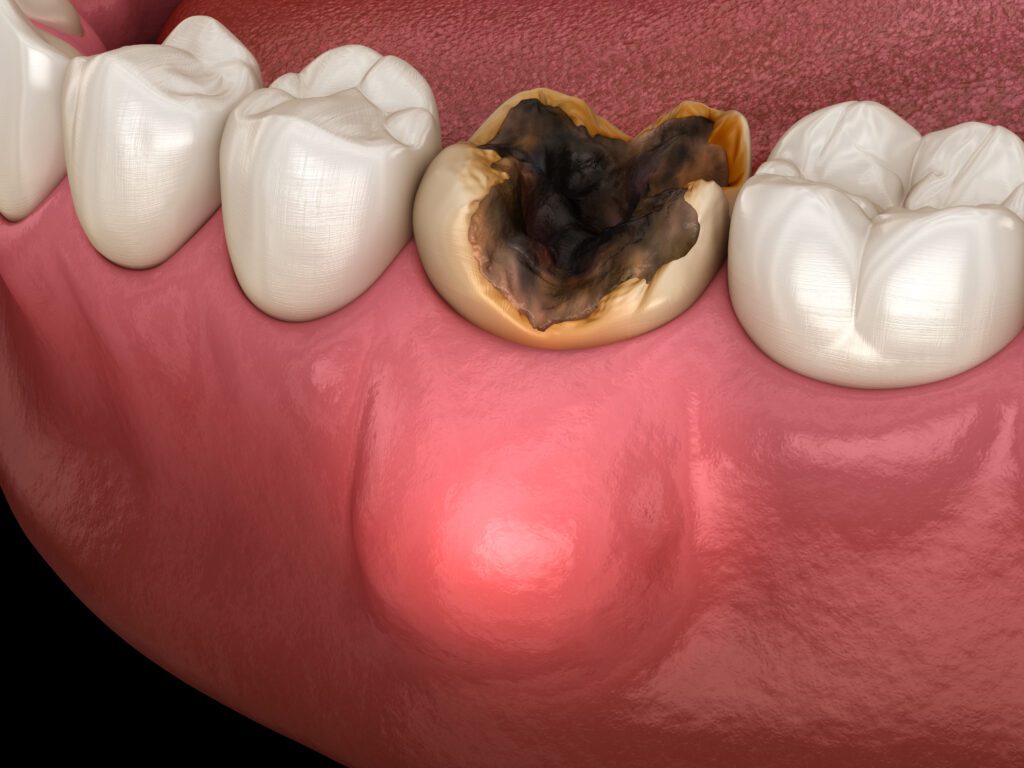
Risks and Complications
A gum abscess, or periodontal abscess, is a serious dental condition that can lead to significant complications if not promptly treated. The risks and complications associated with a periodontal abscess range from oral health issues to life-threatening conditions.
Destruction of Soft Tissues
One of the primary complications of a gum abscess is the destruction of the ligaments and soft tissues around your teeth. This can result in tooth loss and, potentially, damage to the jaw bone.
Damage to Surrounding Teeth
A gum abscess can also lead to an infection spreading deeper into the gum tissue and affecting surrounding teeth. If the infection spreads beyond the mouth, it can lead to more severe health problems.
Spreading Infection
Occasionally, an abscessed tooth can cause sinus involvement, brain infection, and heart complications. These rare but serious complications underscore the importance of seeking immediate treatment for a gum abscess.
In summary, a periodontal abscess is a serious dental condition that requires prompt attention. Left untreated, it can result in significant dental damage and potentially life-threatening health complications. Therefore, it’s crucial to seek dental care when you suspect a gum abscess.
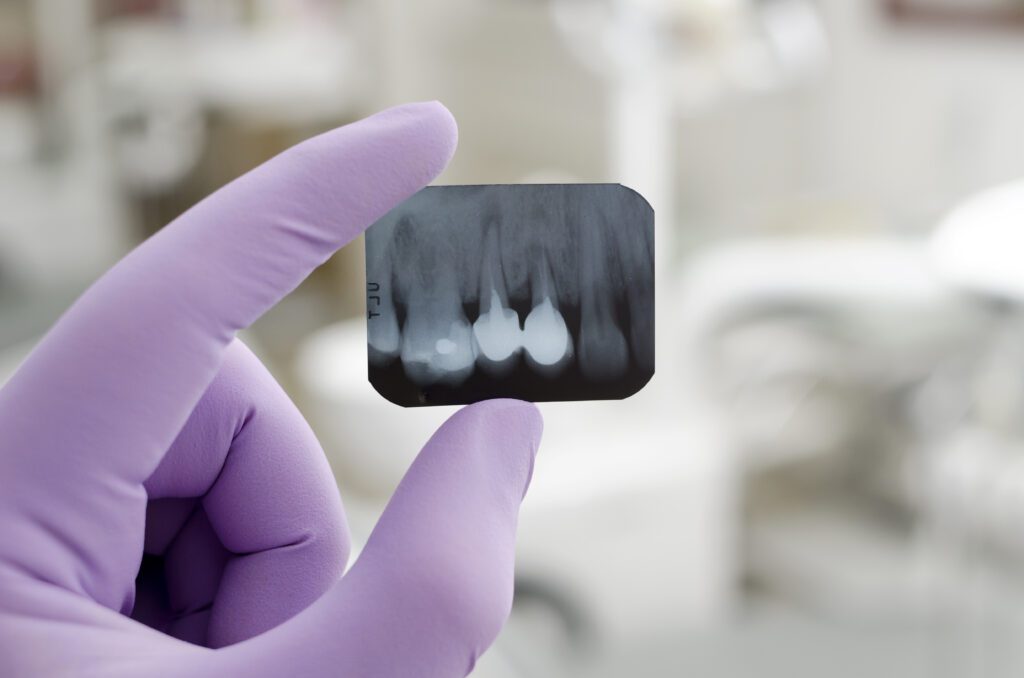
Diagnosing Dental Abscesses
Diagnosing a gum abscess typically begins with a thorough dental examination. Your dentist will look for signs of an abscess, such as swelling or redness in the gums. They may also ask about your symptoms, including pain and sensitivity to heat or cold.
One common method to diagnose abscess is tapping on your teeth. If you have an abscess, it’ll likely cause discomfort when the affected tooth is touched.
In addition to a physical examination, a dental X-ray is often used to confirm the diagnosis of a gum abscess. The X-ray can help identify the abscess and show whether the infection hides a pocket of pus or has spread to surrounding areas. It can also reveal underlying conditions contributing to the abscess, such as periodontal disease.
Sometimes, your dentist may use a probe to measure the depth of gum pockets. Increased probing depths can indicate the presence of periodontal diseases, which can lead to gum or tooth abscesses, bone loss, and even tooth loss.
Once the abscess has been diagnosed, the dentist will drain away the pus to alleviate the pain and prevent the infection from spreading. Depending on the severity of the abscess and the condition of the affected tooth, further treatment, such as root canal therapy or tooth extraction, may be necessary.
Diagnosing a gum abscess involves a combination of physical examination, dental X-ray, and sometimes probing. It’s essential to seek professional dental care if you suspect you may have a gum abscess, as early diagnosis and treatment can prevent further complications.
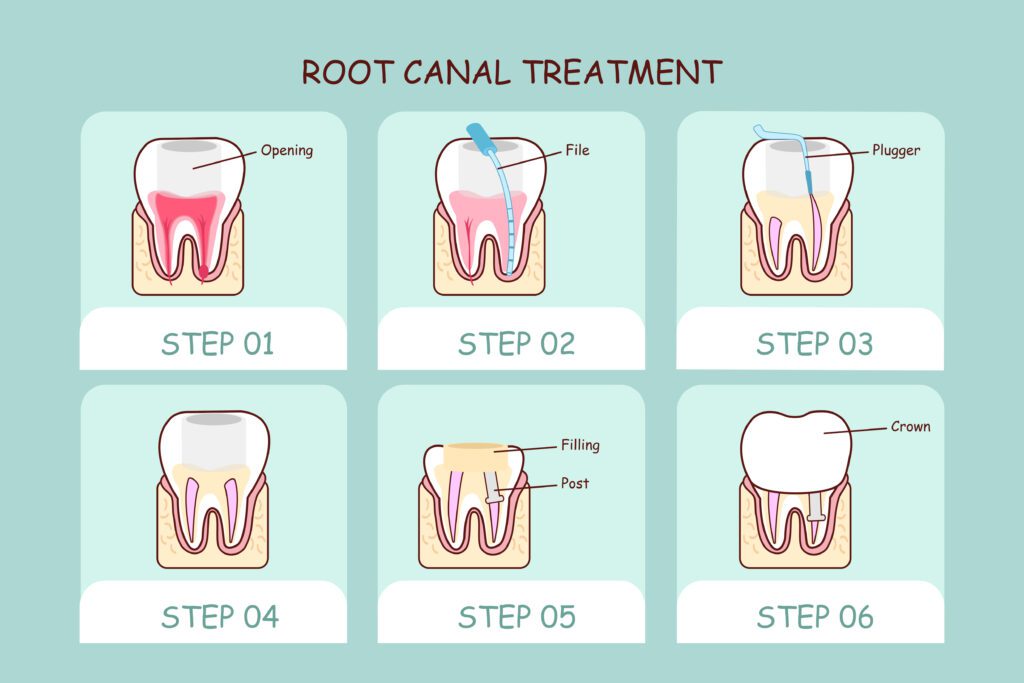
Treatment Options for Gum Abscesses
If you’re dealing with a gum abscess, also known as a periodontal abscess, it’s crucial to understand the treatment options available to you. These treatments aim to eliminate the infection, relieve pain, and prevent further complications.
Drainage of the Abscess
The first step in the treatment of a gum abscess is usually drainage. Your dentist will make a small cut into the abscess, allowing the pus to drain out, which helps to alleviate pain and pressure.
Deep Cleaning
Also known as scaling and root planing, this treatment involves deep cleaning below the gum line to remove the bacterial plaque and tartar that caused the abscess. This procedure might require local anesthesia, as it can be slightly uncomfortable.
Gum Surgery
In some severe cases, mainly where deep cleaning isn’t enough to reach the depth of the pocket, gum surgery may be necessary. This allows the dentist to clean the area thoroughly and repair any damage caused by the abscess.
Tooth Treatment
If the cause of the gum abscess is an underlying tooth problem, such as decay or damage, your dentist may need to treat the tooth. This could involve a root canal treatment or, in severe cases, extraction of the tooth.
Antibiotics
If the infection has spread beyond the abscess or you have a weakened immune system, your dentist might prescribe antibiotics to help fight off the infection.
Home Care
While professional dental treatment is necessary for a gum abscess, specific home remedies can help manage discomfort and supplement your treatment. These include rinsing your mouth with warm salt water, applying a cold compress to the affected area, or using clove oil diluted in water. However, these remedies are not substitutes for professional dental care.
In conclusion, if you suspect you have a gum abscess, seek professional dental care immediately. The proper treatment can effectively manage the condition and prevent it from causing more severe health problems.

Preventing Gum Abscesses
Gum abscesses, or periodontal abscesses, are pockets of pus caused by bacterial infections in the gums. They can be quite painful and potentially lead to more serious dental problems if left untreated. However, they are largely preventable with the proper care and attention to oral hygiene. Here are some strategies and tips for preventing gum abscesses:
- Maintain Good Oral Hygiene: This is the first and most crucial step in preventing gum abscesses. Brush your teeth using fluoride toothpaste at least twice daily, and remember to floss daily. This helps to remove food particles and plaque that can lead to bacteria buildup and infection.
- Use Antimicrobial Mouthwash: An antimicrobial mouthwash can kill bacteria that might cause an abscess. Rinse your mouth with it after brushing and flossing.
- Eat a Balanced Diet: Consuming a diet rich in vitamins and minerals can boost your immune system and help your body fight off infections. Avoid sugary foods and drinks as they can contribute to tooth decay and gum disease.
- Don’t Smoke: Smoking weakens your immune system, making it harder for your body to fight infections like gum abscesses. If you’re a smoker, consider seeking help to quit.
- Regular Dental Check-ups: Regular visits to the dentist are crucial in preventing gum abscesses. Your dentist will clean your teeth professionally, removing plaque and tartar that you can’t get rid of with regular brushing and flossing. They’ll also be able to spot early signs of gum disease that could lead to an abscess.
- Prompt Treatment of Dental Issues: If you experience dental issues such as tooth decay, loose fillings, or broken teeth, seek treatment immediately. These can provide entry points for bacteria, leading to an abscess.
- Use Fluoride Products: Fluoride strengthens the enamel on your teeth, helping to prevent decay. Consider using a fluoride mouthwash or a toothpaste that contains fluoride.
Remember, prevention is always better than cure. Incorporating these strategies into your daily routine can significantly reduce your risk of developing a gum abscess. However, if you notice any signs of a gum abscess, such as severe pain, sensitivity, swelling, or a foul taste in your mouth, seek dental treatment immediately.
Conclusion
Abscesses on gums can be painful and potentially dangerous if left untreated. However, most people can avoid this condition with good oral hygiene and regular dental check-ups. If you suspect you have a gum abscess, seek dental treatment promptly to prevent further complications.
At Patient Empowered Dentistry in Eastpointe, Michigan, we’re committed to providing high-quality oral healthcare and educating our patients about the importance of maintaining good oral health. We believe in empowering our patients with knowledge so they can make informed decisions about their dental care.
Contact us today if you have any questions or concerns about gum abscesses and how to prevent them. We’re here to help!
